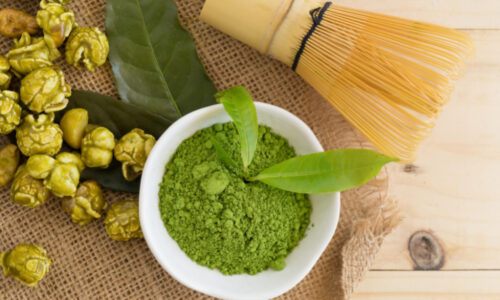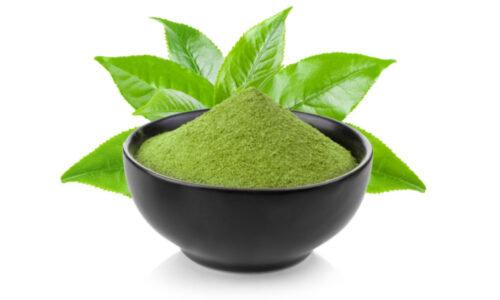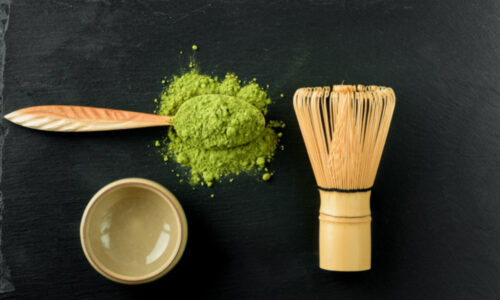There are many reasons people may be looking for a solution to relax. Stress from work, family life, and overall mental well-being can lead to anxiety or depression.
Some studies have found that L-Theanine can help with these issues and more. What is L-Theanine?
You may not know it, but this hidden ingredient in your tea cup could make you feel relaxed. It is an amino acid found in green tea leaves, which provides a natural way of relaxing without any side effects. Here we will explore how it works, what L-Theanine used for, and why it can be the relaxing solution you’re looking for.
What is L-Theanine?
L-theanine is an amino acid that can promote relaxation without drowsiness when taken in small doses. Green and black tea leaves contain it, and it has been a traditional drink for centuries. In Asia, it’s not uncommon to see people drinking tea in the middle of the day to help them stay alert and focused.
What does l-theanine do to the brain?
The mechanism of actions of L-theanine is not fully understood, but it is thought to work by increasing some brain chemicals and neurotransmitters in the brain while decreasing others. L-theanine also has been shown to increase alpha waves and promote a state of relaxed focus. The result is improved mental clarity, alertness, cognition and creativity with no adverse side effects or addictive potential.
What is L-theanine used for?
L-theanine is a chemical you might be hearing more about as its popularity grows. Research has shown that there are many health benefits of l-theanine. It is found that l-theanine helped increase mental clarity and creativity without causing adverse side effects and psychological stresses. It is found in black and green tea leaves, so many people drink these beverages throughout their day.
Some people take l-theanine for anxiety, depression, and stress and to help improve sleep. It is also being studied for its potential to enhance cognitive performance and memory in those with Alzheimer’s disease.
Taking it before bedtime can help improve sleep quality by reducing nighttime excitability or even paranoia with high caffeine or alcohol consumption doses. It also offers many of these benefits when combined with caffeine since l-theanine counteracts the jittery effects of this stimulant on the nervous system. Research has shown that when combined with caffeine, l-theanine increases mental performance and focus without adverse effects.
Benefits of L-theanine
L-theanine has a host of benefits. Research suggests that l-theanine can:
- Promoting relaxation
- Reducing stress and anxiety
- Enhance mental clarity
- Improve their focus and creativity
- Speak more clearly
- Organise your thoughts better
- Concentrate on the task at hand
- Improve sleep quality
- Wake up more effortlessly in the morning
- Feel calm without feeling tired or hazy
- Achieve a more relaxed yet focused state of mind.
- Increasing feelings of relaxation and well-being
- Reducing symptoms of PMS
Who can benefit from using l-theanine?
L-theanine can greatly benefit anyone who wants to reduce stress levels, increase relaxation, and improve focus and creativity. Some of the groups that can significantly benefit from using l-theanine include:
- Students and busy professionals can benefit from taking l-theanine to assist with concentration and focus while reducing stress levels. It can also help with creativity and problem-solving.
- Parents can also take l-theanine to help them feel more relaxed, especially if they feel overwhelmed with their responsibilities.
- People who suffer from generalized anxiety disorder, attention deficit hyperactivity disorder, depression or stress can also greatly benefit from using l-theanine as it can help with the mood and cognitive symptoms they may be experiencing.
- People who often feel overly tired, especially after a busy day at work or with children, can also benefit from using l-theanine to help them relax and may help improve sleep quality. Who doesn’t want a good night’s sleep?
- People want to feel more relaxed without being tired, hazy or ‘zombified’ state of mind.
- Overstimulated by caffeine but unable to give it up since it boosts their energy and mood.
L-theanine is a safe and natural way to improve your quality of life without other relaxation methods or medications’ adverse side effects or addictive potential.
How can I take L-Theanine?
The easiest and most common way to get your daily dose of L-theanine is through natural green and black tea sources. Many people drink tea because they like the taste or its antioxidant properties, but studies show that it can help reduce stress levels without causing drowsiness.
While the amount of the amino acid in tea will vary depending on the quality of the leaves and the brewing method, it is generally between 50mg and 200mg per cup. So, drinking a few cups daily should be enough to experience its benefits.
Another alternative to L-theanine is supplementation. Some people find that taking a supplement in capsule form is more convenient than drinking tea, and it can be easier to control the dosage. The suggested dosage for capsules is 100-200mg per day.
Can you find L-Theanine in food?
It is possible to find l-theanine in food, but it’s not nearly as potent as drinking a cup of green tea or matcha tea. Eating foods that contain l-theanine can help because it does get absorbed into your system, but the amount will vary depending on how much is eaten and what type of food it is. You can find l-theanine in tea and some mushrooms.
Mushrooms are the only food known to contain a significant amount of l-theanine. The specific type is called boletus badius, the brown mushrooms you find on forest floors. It also contains vitamin D and protein. It is possible to find l-theanine in different mushrooms, but the specific amount will vary.
Some types of seaweed, such as “wakame”, contain l-theanine, but the amount is much lower than in mushrooms. These seaweed varieties include kelp, kombu, and nori.
Other food sources that contain some amount of l-theanine include:
- Duck, beef and chicken eggs
- Rice bran oil
- Soybeans
- Rice, barley and oats
- Brewer’s yeast
- Cocoa powder (unsweetened)
- Fruits: apples, apricots, celery, cherries, oranges and peaches.
So, drinking tea is an excellent option if you are looking for a convenient and easy way to reduce stress levels. Not only will you be able to enjoy the flavour and antioxidants, but you will also get the benefits of l-theanine. And, if you need a little more boost, taking a supplement in capsule form is another excellent way to go.
Can it be combined with other nootropics or supplements?
While there are many different stacking options, dosing can vary based on specific needs, so it is crucial to speak with a doctor before trying l-theanine for its nootropic properties.
Taking too much l-theanine can cause some side effects such as:
- Headache
- Irritability and anxiety
- Dizziness and nausea.
An overdose of l-theanine is unlikely but possible, so the best way to avoid this is by sticking to recommended dosages on product labels.
Another potential disadvantage of nootropics is that many contain caffeine, which can induce side effects in excess amounts. When caffeine and theanine are combined, you may get a headache; however, their potency increases. The effects of caffeine will also wear off more quickly, so it is essential to be mindful of your dosage if you decide to stack them. Before combining the two to achieve more significant nootropic benefits, speak with your doctor first.
Can l -Theanine be combined with alcohol?
Mixing l-theanine and alcohol is not recommended since it can cause problems such as:
- Dizziness and nausea.
- Irritability and anxiety
- Slowed reaction time.
It is ok to drink in moderation, and all people react differently, but the best way to avoid these side effects is by mixing alcohol and l-theanine.
How much caffeine is in l-theanine?
There are generally negligible amounts of caffeine in l-theanine supplements, but they vary between brands. It is essential to check the label of whatever product you are taking for more information on caffeine content and other possible ingredients that may interfere with its nootropic effects.
There may be some caffeine in teas due to the tea leaves themselves, but the amount will vary depending on the type of tea and how it is prepared. Again, it’s essential to check the label to see the specific caffeine content.
Is l-theanine addictive?
There is no indication that l-theanine is habit-forming. Tolerance to its effects may develop over time, so some people may require higher dosages. This isn’t the same as addiction, though, and the easiest way to avoid it is by adhering to recommended dosages printed on product labels.
Is l-theanine safe?
Many studies have been done on l-theanine, which has been repeatedly deemed safe for human consumption. It is impossible to overdose on it, but taking too much may cause headaches, irritability and nausea.
L-theanine supplements are generally very well tolerated, and side effects are rare. However, some people should avoid using them or consult their healthcare provider before supplementation. If you have any health problems, take medications or have any pre-existing medical conditions that would affect how you can use l-theanine for its nootropic properties, seek medical advice first.
Tips for taking L-Theanine
Some tips for taking l-theanine can help you get maximum results. One of these is sticking to a specific time each day when you make it so that your body gets used to it and you can start to experience its benefits more regularly.
Many l-theanine supplements are on the market, but not all of them are created equal. Make sure you know you’re getting an effective dosage of l-theanine and putting high-quality products into your body daily.
Finally, be sure to take it regularly. Like many supplements, consistency will help you get the most benefits over time to reduce stress levels and improve mental clarity, focus, and creativity. Try to make it a part of your routine, and you’ll likely start to see results.
Wrap up
If you’re looking for a way to relax without taking medication, the chemical l-theanine may be your answer. Many people are looking for ways to reduce stress and anxiety in today’s society.
L-theanine is a natural, safe way to improve your quality of life without other relaxation methods or medications’ adverse side effects or addictive potential. The chemical has been shown to promote relaxation and reduce stress levels. If you’re looking for an alternative method aside from medication, L-Theanine is the relaxing solution you’re looking for.
If you’re looking to relax and improve your mental clarity, focus, and creativity, consider adding l-theanine to your daily routine. Matcha is an excellent source of l-theanine, and when paired together, these two ingredients provide significant nootropic benefits.
FAQ
Is l theanine used for anxiety?
Yes, l theanine is sometimes used for anxiety. It is a calming agent that can help to soothe the mind and promote relaxation. Additionally, l theanine may improve cognitive function and focus.
Who should not take l-theanine?
Pregnant or breastfeeding people should not take l-theanine, as it has not been studied in these populations. Additionally, l-theanine should not be taken by people with liver disease or by those taking medications that affect the liver.
How long does it take for l theanine to kick in?
It usually takes about an hour for l theanine to kick in. However, this may vary depending on the individual. Some people may feel the effects sooner than others.
What are the side effects of l-theanine?
The most common side effects of taking l-theanine are headaches and stomach aches. Additionally, some people may experience anxiety or insomnia. L-theanine is generally well-tolerated, and side effects are typically mild and resolve independently.
Do you need to take l theanine every day?
No, you do not need to take l theanine every day. L-theanine is a safe and effective supplement that can be taken as required. However, if you are looking for continual benefits, it is recommended that you take l-theanine regularly.
Which tea contains the most l-theanine?
Black tea and green tea are the two main types of tea that contain l-theanine. Green tea generally has more l-theanine than black tea, but both teas offer health benefits. White and oolong teas typically contain lower levels of l-theanine.
Black tea contains more caffeine than green tea. The effects of caffeine and theanine can be synergistic, meaning they can work together to improve focus and cognitive function. However, too much caffeine can cause side effects such as anxiety and jitters. If you are sensitive to caffeine, it is best to stick with green tea. The components of green tea can also promote relaxation and reduce stress.
Does l-theanine cross the blood-brain barrier?
Yes, l-theanine can go through the blood-brain barrier. This allows it to have a direct impact on the brain and nervous system. It also has neuroprotective effects, which assist in maintaining neurons in the body from harm.


